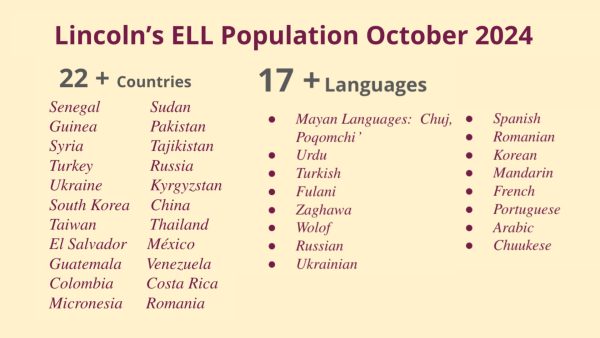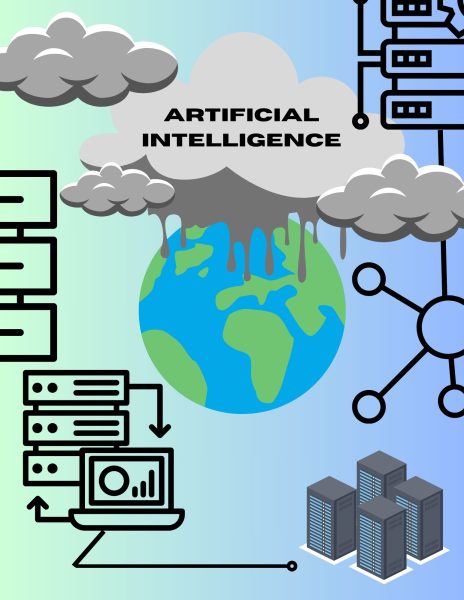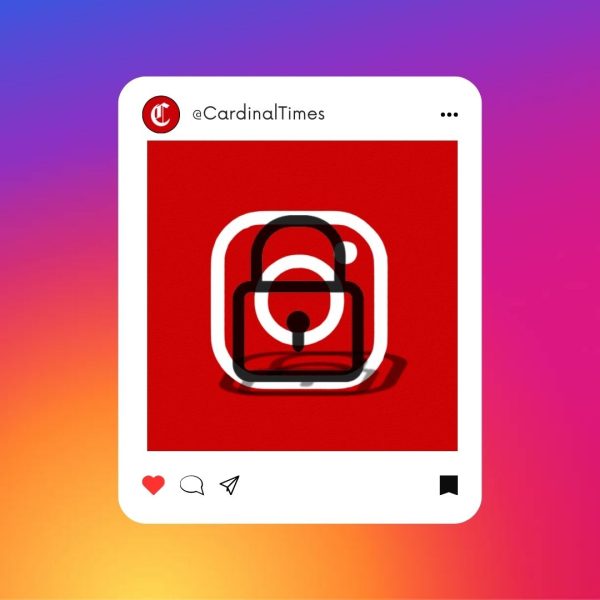Students and Teachers Express Opinions About Impeachment Inquiry
On September 24th, 2019, Nancy Pelosi, Speaker of the House of Representatives, initiated an impeachment inquiry against President Donald Trump.
Pelosi initiated the inquiry after allegations that President Trump was abusing his power and then covering up the abuse in “order to advance his personal interests” according to the whistleblower complaint released to the public by the House Intelligence Committee. The whistleblower claims that their report was based off the testimony from “half a dozen U.S Officials.”
The inquiry is investigating whether from May to August 2019, President Trump and his personal attorney, Rudy Giuliani, asked the government of Ukraine to investigate Joe Biden and his son, Hunter Biden. Joe Biden is the former U.S. Vice President and is a frontrunner for the 2020 Democratic nomination.
Serhiy Leshchenko, a former advisor to Ukrainian President Volodymyr Zelensky, said that it was a “clear fact” that the United States would only communicate with Ukraine in the future if they investigated the Biden family. Additionally, President Trump stopped military aid to Ukraine during this time.
The whistleblower’s report also alleges that President Trump pressured Zelensky to start two investigations in July (one of which was into the Biden family), and accuses the White House of attempting to cover up these calls.
After the whistleblower report was published by the House Intelligence Committee, the Trump administration released a transcript of the phone call, confirming that President Trump had asked Zelensky to “look into” the Biden family. The whistleblower report also stated that the calls President Trump had with Ukraine were held on top-secret classified servers, and on September 26th, this allegation was confirmed by the White House.
Now, the legal team that is representing the whistleblower has said that it is also representing a second person with information on the issue. This person is currently deciding whether or not they want to come forward with what they know.
Article II, Section 4 of the Constitution states that the President “shall be removed from Office on Impeachment for, and Conviction of, Treason, Bribery, or other high Crimes and Misdemeanors.”
If a President is suspected of any of these things, the House of Representatives can impeach with a simple majority under Article I, Section 2, while the Senate has the power to remove with a two-thirds vote under Article I, Section 3.
One opinion comes from social studies teacher, Rebecca Eisenberg, says that “there is a major poll that came out that said that the majority of Americans now support impeachment. Whether or not they actually understand what that means might be a different story”.
Social Studies teacher Chris Buehler says that most of his students favor the impeachment and that he is “pleasantly surprised about how aware and knowledgeable students have been about the impeachment process.”
Though he acknowledges that the actual impeachment comes from Congress, Buehler says that “there’s also a public component too and if you can kind of paint a story and an image of the president committing an act that’s considered dangerous to Americans, in some ways you can challenge his legitimacy in a social sense.”
On this note, Buehler thinks that Pelosi is trying to dig up as much dirt as she can before the election. This way, all the cards are on the table for voters.
“In some ways it can be kind of a dangerous path because if he is absolved and either not impeached or not convicted it’s going to essentially give him some sort of argument that he’s powerful and in some ways above the law and that’s in some ways even scarier.”
Senior Sara Blodgett agrees that there is not enough time to impeach and remove President Trump. She also says that Speaker Pelosi did not start the inquiry with “malicious intent. She didn’t do it for her own benefit, she did it because she thought it would benefit the people at large”. Blodgett agrees with the impeachment on some grounds, but not others. In the end, she believes that the chances of him being removed from office are very unlikely.
President Trump is saying that the whistleblower is in the wrong and was acting as a “spy” by releasing this information. However, this person is protected under the Whistleblower Protection Act of 1989. This act protects federal whistleblowers who work for the government and report any possible violations of the law. So in any case, those who are accusing President Trump will be protected, but we will have to see whether President Trump himself will be saved from the law.





